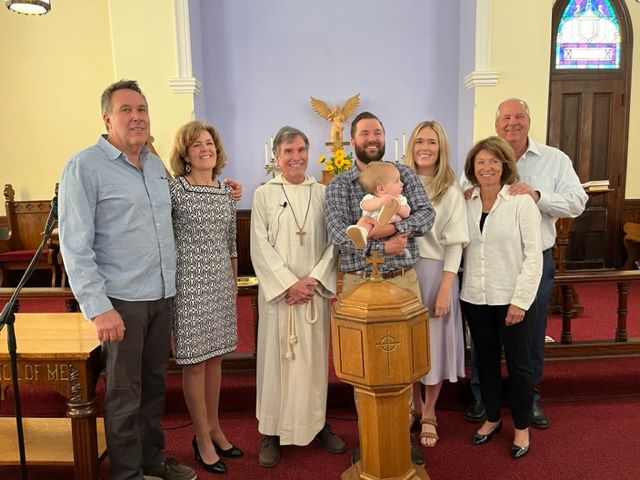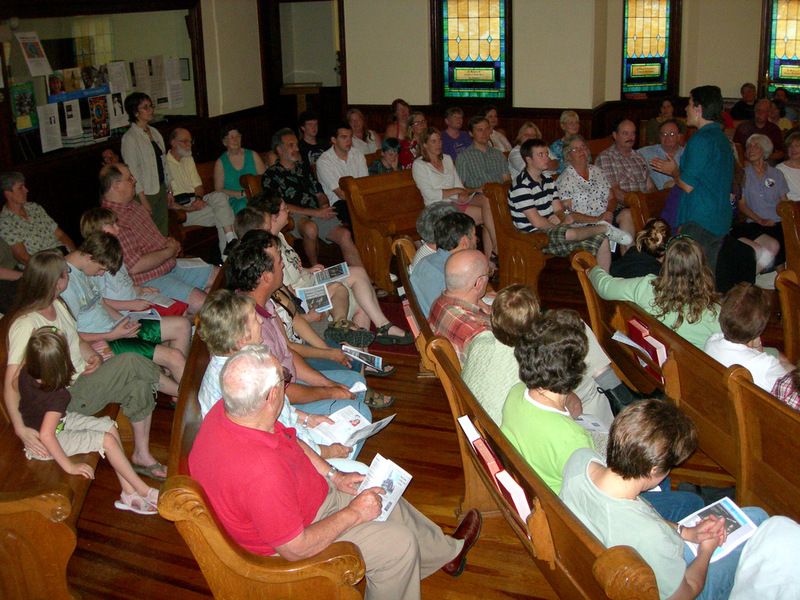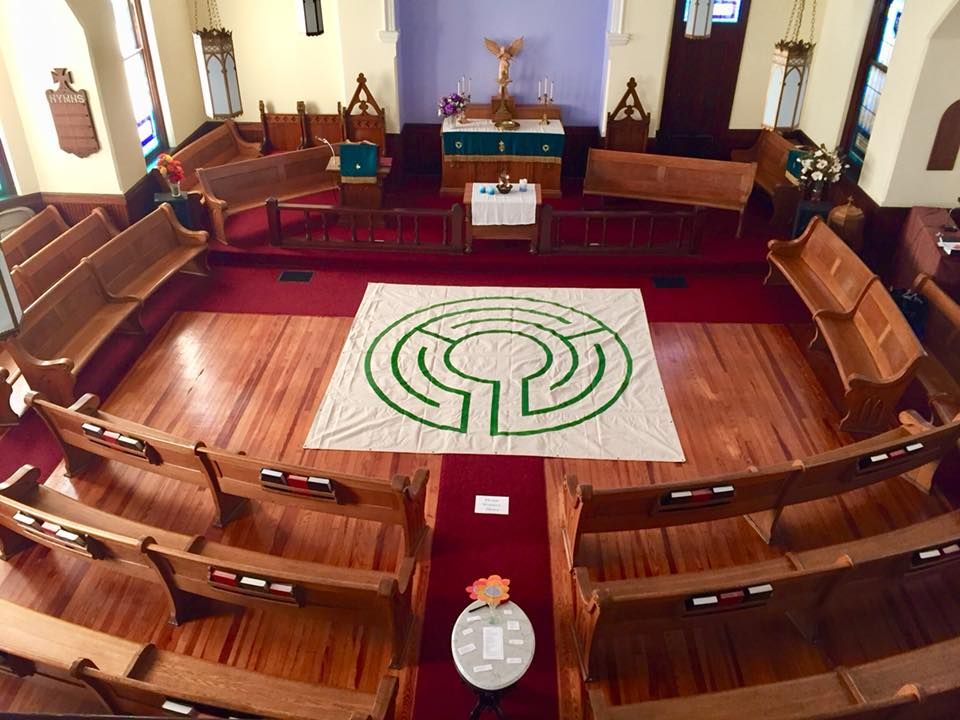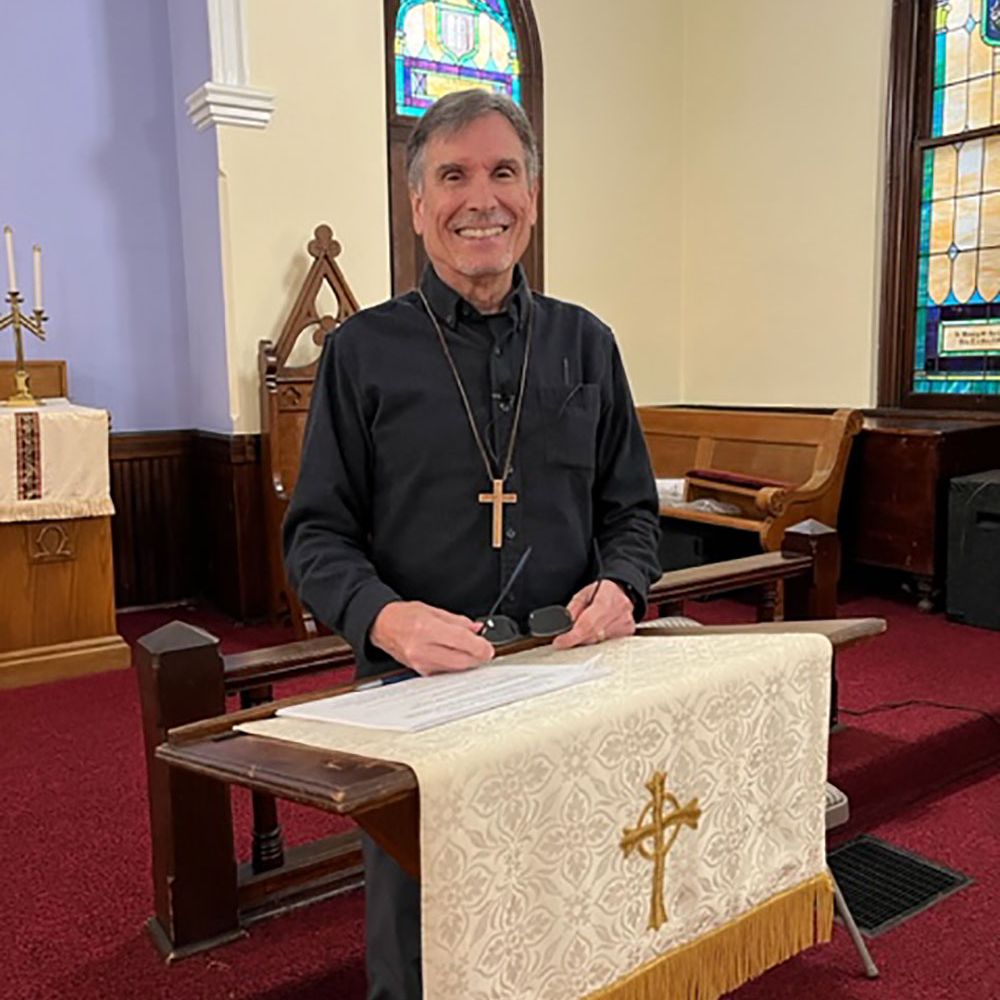
We Believe in Asking Questions
St. James United Church of Christ is a community of people who don’t feel they have to unquestioningly accept a given set of beliefs in order to fully and joyfully experience worship.
While our faith tradition is firmly rooted in the life and teachings of Jesus, we welcome people from all walks of life who find meaning in other faith traditions as well.
We believe worship is an authentic expression of our love, compassion, and generosity. We value your individual journey. Here, you’ll find a safe place to ask questions, share what you know, and be exactly who you are.
While our form of worship is in many ways traditional, we find an affinity of spirit with movements that refocus the Christian path on the principles of love, compassion, and generosity taught by Jesus.
We stand firmly against voices of intolerance and exclusion, recognizing that they do not represent the true essence of Christianity.
When you step into St. James on any given Sunday, you will encounter a worship experience that speaks to the heart and invites meaningful engagement with life and the world. Our worship becomes alive through our love for one another and our collective celebration of the blessings and goodness of life.
We stand by each other through times of grief and adversity, offering support and care. Most importantly, we extend an open and genuine welcome to all who seek a faith family, regardless of who you are or where you come from.
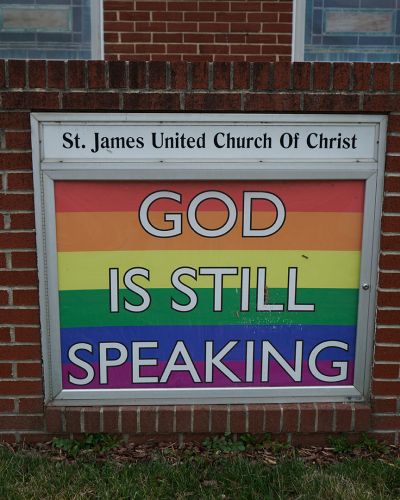
The History of St. James UCC
St. James UCC has the honor of being the oldest congregation within the United Church of Christ in Virginia.

The German Settlement was the Reform Congregation and the Reform Congregation was the German Settlement.
The first church building of the German immigrants who came to our area was constructed of log not long after 1733 on a low hill east of the present Town of Lovettsville. An entry from a 1760s record book states ‘the dilapidated condition’ of that building, and a second log building was constructed in 1775. ‘Indisputable evidence exists,’ wrote one of the early pastors, that a third church, this time built of brick, was erected and served the congregation until it began thinking of building a new church in town.
During the term of Reverend Rinker (1873-1891), the Mite Society, a women’s organization of the church was formed, and through dinners and other means of raising funds purchased a lot in Lovettsville for $300 and presented the deed to the consistory. However, this lot was sold and the consistory bought another, bigger lot from the Potterfield family, and it was there that the present church was built in 1901 and consecrated ‘with no debt rested upon it.’ It became St. James Reform Church.
In 1934 it merged with another congregation with a similar heritage and became St. James Evangelical and Reform Church. In 1940, the stained glass memorial windows were installed, adding great beauty. In 1957, the church merged with the Congregation Christian Church and became the United Church of Christ, a mainline denomination. In 1983 a historical marker was secured through the Virginia Historic Landmarks Commission and placed in front of the building.
This brief history of Lovettsville (The German Settlement) describes the people who migrated between 1683 and 1775 from Germany to Pennsylvania and then later settled in the Catoctin Valley.
Like the Quakers, Germans in the area did not own slaves, perhaps due to their own long history of persecution in the Old Country and a firm belief in personal liberty.
Our heritage of independent thought and open minds continues to be reflected in our commitment to authentic justice and prophetic witness, our interfaith work, and our statement of faith:
– Compiled by the late Susanne George, St. James UCC Trustee, from Lovettsville, the German Settlement by Yetive R. Weatherly and Celebration of a Heritage, a booklet produced by church council members in 1983 to celebrate the church’s 250th Anniversary.
